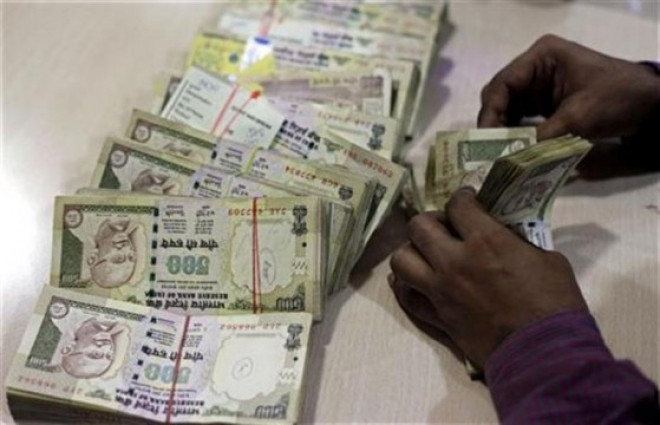IMF Warns India Against Global Currency Market Volatility Due to Continued Fed Tapering

The International Monetary Fund (IMF) has asked India to prepare for risks related to possible volatility in the global currency markets, as the US Fed goes ahead with its stimulus tapering.
The US Federal Reserve earlier reduced its bond buyback programme to $65bn (£39bn, €47bn) per month in the second consecutive $10bn cut.
The IMF added that the third-largest economy in Asia has to rein in inflation, consolidate the fiscal position, and accelerate structural reforms to "promote sustainable and inclusive growth" amid adverse global conditions.
"The principal risk facing India is the inward spill-over from global financial market volatility," the international agency said in a statement.
"Protracted economic and financial volatility (triggered by advanced economies' exit from unconventional monetary policies), a lengthy Euro area growth slowdown, and higher oil prices are the main external risks."
Protracted economic and financial volatility (triggered by advanced economies' exit from unconventional monetary policies), a lengthy Euro area growth slowdown, and higher oil prices are the main external risks.
The IMF also asked the country to consider judicious use of reserves, tightening of monetary conditions, and additional fiscal adjustment to deal with possible capital account risks.
Furthermore, the IMF directors recommended that the authorities should maintain an appropriately tight monetary stance given the high inflation rate in the country. They also asked for both tax and subsidy reforms to ensure the quality and sustainability of the country's fiscal consolidation.
'Well Capitalised and Supervised'
The organisation added that India's financial system is well capitalised supervised, and its economic growth would rebound modestly in the next financial year.
The IMF projects India's economic growth at 4.6% for fiscal year 2013/14 and at 5.4% in 2014/15, rebounding from the recent slowdown.
"Stronger global growth, improving export competitiveness, a favourable monsoon, and a confidence boost from recent policy actions should deliver a modest growth rebound," the IMF said.
The comments from the agency come after the country undertook a number of measures to address domestic and external issues that negative affected its growth rate.
India's high inflation and sizable current and fiscal deficits in addition to the US Fed's decision to taper its stimulus resulted in a slide in its currency and a massive outflow of foreign investments.
The Reserve Bank of India headed by Raghuram Rajan has recently surprised global markets with its policies. Rajan has raised the policy rate by a total of 75 basis points to 8% since taking over the RBI in September in order to address the country's stubborn inflation and bolster the country's reserves amid external risks.
Due to the measures, the current account and fiscal deficit is narrowing and capital inflows are picking up. The current account deficit, after reaching a record high last year, is expected to narrow to about 3.3% of GDP in the ongoing fiscal year due to rebounding exports, higher remittances, rapidly-shrinking gold imports, weakening domestic demand, and broadly stable oil prices.
© Copyright IBTimes 2025. All rights reserved.






















